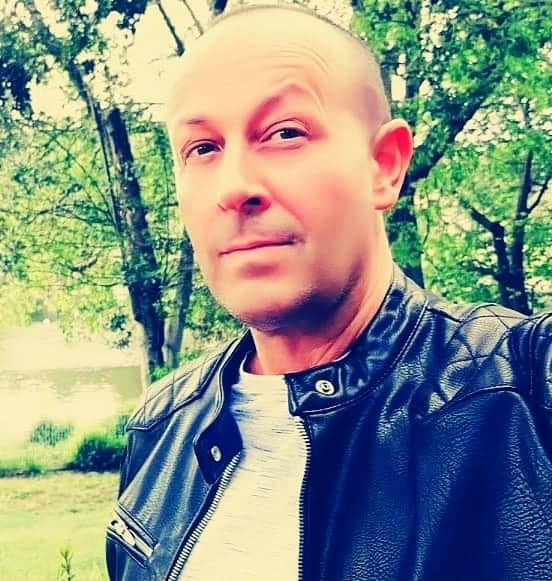
“Tell me the facts and I’ll learn. Tell me the truth and I’ll believe. But tell me a story and it will live in heart forever.”
– Native American proverb
“Once upon a time…” The phrase takes many of us back to our childhoods. It brings back memories of snuggling under the covers as a parent told us a bedtime story, or sitting cross-legged on the classroom floor as the teacher read out loud.
We listened raptly, wondering where the story would take us next. Even as adults, we love stories and the journeys they take us on. It’s stories that grab our attention and keep it.
Hiring manager and Recruiters love stories, too. They enjoy learning about your story and where it is going next.
At school, I learned about the marketing concept “what’s in it for me?” and how important it was to answer that question through storytelling. That was close to 25 years ago, and the idea remains as strong now as it was then.
Our culture has been handed down for centuries through the oral tradition of storytelling. It’s in our nature to tell stories. People love to relate an anecdote when friends ask them about a purchase they’ve made.
Creating a compelling story about your career is a great way to let recruiters know who you are and what you stand for. It’s through this narrative that you gain their interest and, more importantly, their trust. It doesn’t need to be some huge tome, telling them every little thing about your path. It just needs to be enough to give them a taste, make them want more and, most importantly, help them remember you and your experiences.
As a career coach I’ve spent the last 20 years making and selling my work. My customers (companies and job-seekers) love to hear the story behind each of my pieces. Even if they don’t buy anything, I tell them the story about my life and career choices. I can’t tell you how many people come back and say, “I remember you and that interesting anecdote on when you left your job and started your own project”.
In this digital age, one might think that storytelling is dead, but that is simply not the case. If anything, storytelling is prevalent in our society now more than ever. Online videos, posts on social network, blogs and articles are a great example of storytelling. It’s amazing how one well-crafted products like these can tell so much in such a brief time. If you make it a good one, and it goes viral. Next thing you know, everyone is telling your story for you.
Obviously not everyone is a good storyteller. Back in the Middle Ages, communities relied on bards to come to town and recite stories. Not just anyone could be a bard; it took a certain skill. It’s kind of like the difference between a person who’s good at telling jokes, and one who isn’t. If it’s not told right, the joke falls flat. You don’t want this to happen with your own brand story.
So, crafting and presenting your story is a skill that comes with practice and insight.
You need to understand your own brand as well as your audience to start.
Here’s how storytelling can help you ace your job interview:
- Storytelling starts with knowing yourself
Not only can telling stories enable others to know you better, but they can help you get to know yourself better.
Developing and telling your stories can become the underpinning for self-authentication.
As you see common threads and patterns emerging in your stories, you’ll understand more about yourself, your goals, your best career path, your ideal job and this understanding can’t help but boost your confidence and improve your ability to sell yourself to an employer.
It enables job-seekers to uncover meaning and connections. They become central characters in their own stories and plot their own futures.
- A Compelling Story Can Make You Stand Out
If there’s one thing recruiters and hiring managers love seeing in a candidate, it’s passion. So rather than just telling them that you’re interested in your field, start your career story by telling them why you’re interested in the field, and how that interest came to be.
And remember, you don’t just regurgitate what’s on your resume. Infact your resume doesn’t speak for itself, neither does your experience nor your desire, your work ethic, your creative output.
You have to get in there and animate what’s on the page or screen. You do this by assigning intent and meaning to your choices and portraying yourself as an agent in your own life vs. someone who has been battered around by forces outside their control.
In this way you paint yourself as the protagonist and not the victim of circumstances.
To do this, first review the job description, your research into the hiring firm’s needs, and your research into the interviewer’s career and background. Then, reminisce about your experiences to find a story or anecdote that, when you’re done telling it, will leave the desired impression.
Your interviewer wil forget what you said, but they’ll never forget how you made them feel. If you can emotionally connect to a recruiter or hiring manager through a funny, cute or heartwarming story about how you became involved in the field, you’ll be that much more memorable.
- No good at stories? Prepare and practice
Most of us have not told stories in front of an audience and so you will need to practice.
Start to tell your story in front of a friendly audience and get feedback.
Gauge your pace, and take note of the story’s length and your use of language.
It will be a bit rusty at first, but underneath it all, we are all born storytellers.
- And don’t forget to be authentic
Don’t pretend to be someone that you’re not.
Storytelling should be authentic and help you to demonstrate your personality – so don’t copy someone else’s style or try to be a comedian.
If you are naturally extrovert and expansive, this will already come across in the way you express yourself.
If you are naturally quieter, more introverted and a little quirky, then that is ok too.
Remember, it’s vital that you are matched with a job that will genuinely suit you.
By showing your character in such an honest and memorable way, your interviewers will get a true sense of how you would fit culturally and individually within the company and the wider team.

